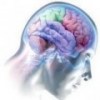Although even the youngest infants have some ability to remember the past, this ability increases in both its reliability and its "temporal extent" with age. Such differences could result from changes in any of memory's constituent processes, including encoding, consolidation, or retrieval. Although this week's posts have focused on the idea that source monitoring difficulties underlie the apparent loss of early memories (i.e., a difficulty in retrieval), Bauer's 2006 TICS review emphasizes emerging evidence that encoding and storage or consolidation are also to blame.
Bauer has argued that retrieval processes reach adult levels later than encoding and consolidation processes. For example, encoding can be indirectly observed by testing for recognition memory immediately after the initial event; such studies show an increase in the amount and accuracy of information that can be retained from 12 to 20 months of age. More direct measurements of encoding - via ERPs - show a larger eletrical response to familiar relative to novel items at 9-months, with that difference increasing among 10-month-olds.
But even if encoding ability is statistically controlled, infants show individual and age-related variation in other aspects of memory. For example, Bauer reviews a task in which the same ERP measurement described above is also used 1 week after an initial experience; variation in this consolidation and retrieval measurement - but not in the previous encoding measurement - predicted sucessful recall 1 month later. This demonstrates that even in infancy, there are factors independent of encoding that strongly contribute to successful memory.
Bauer argues that it is also possible to disentangle consolidation from retrieval in infants. By repeatedly testing infants, those who can successfully retrieve the previous experience will have this memory increasingly strengthened; conversely, those who cannot retrieve the experience will show no such improvement on subsequent tests. Controlling for encoding differences, increases in performance on subsequent tests can be chalked up (in large part) to superior retrieval skills.
Similar logic guided a 2005 Psychological Science article by Bauer, in which 13, 16 and 20-month-olds were tested on a deferred imitation task either 1 or 6 months after encoding. Even after controlling for the effects of encoding (measured through immediate imitation on a subset of stimuli), infants of each age showed different patterns of forgetting: 13 month olds showed a sharper forgetting curve than 16 month olds, who themselves showed a sharper forgetting curve than 20 month olds. Furthermore, Bauer removed variance due to retrieval processes (measured through the amount of benefit provided to recall by additional retrieval cues) and still observed substantial variance between ages - suggesting to her that storage is "the primary source of the developmental trend in long-term recall."
How does Bauer's account fit with what is known about the anatomical development of brain structures involved in long-term memory (i.e., the medial temporal lobe, and hippocampus in particular)? This is the topic I'll cover next week.
